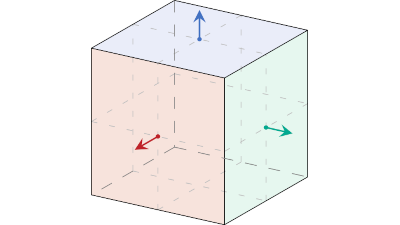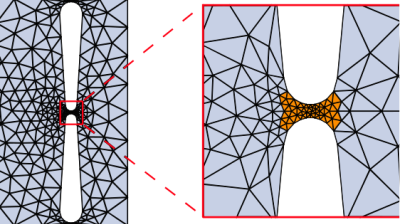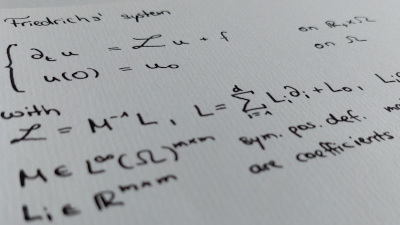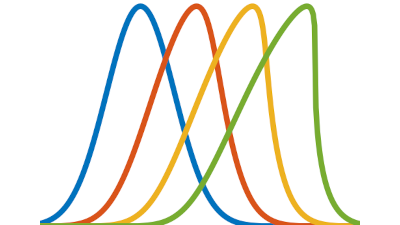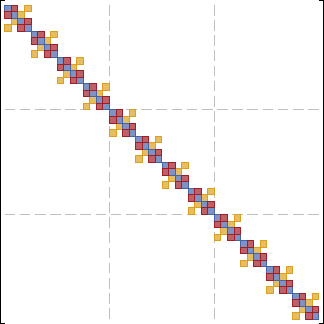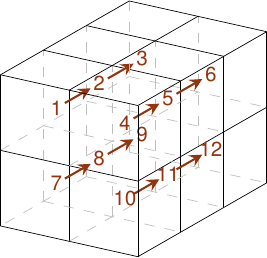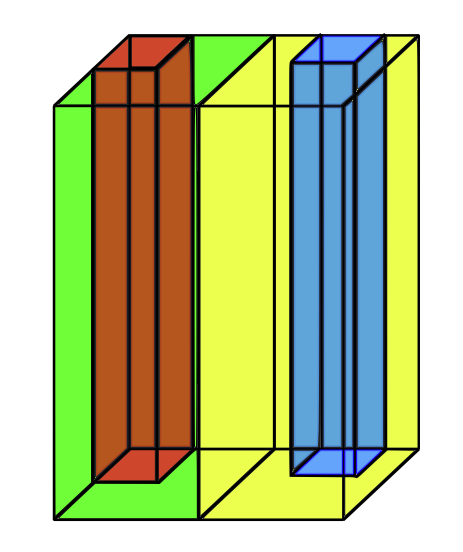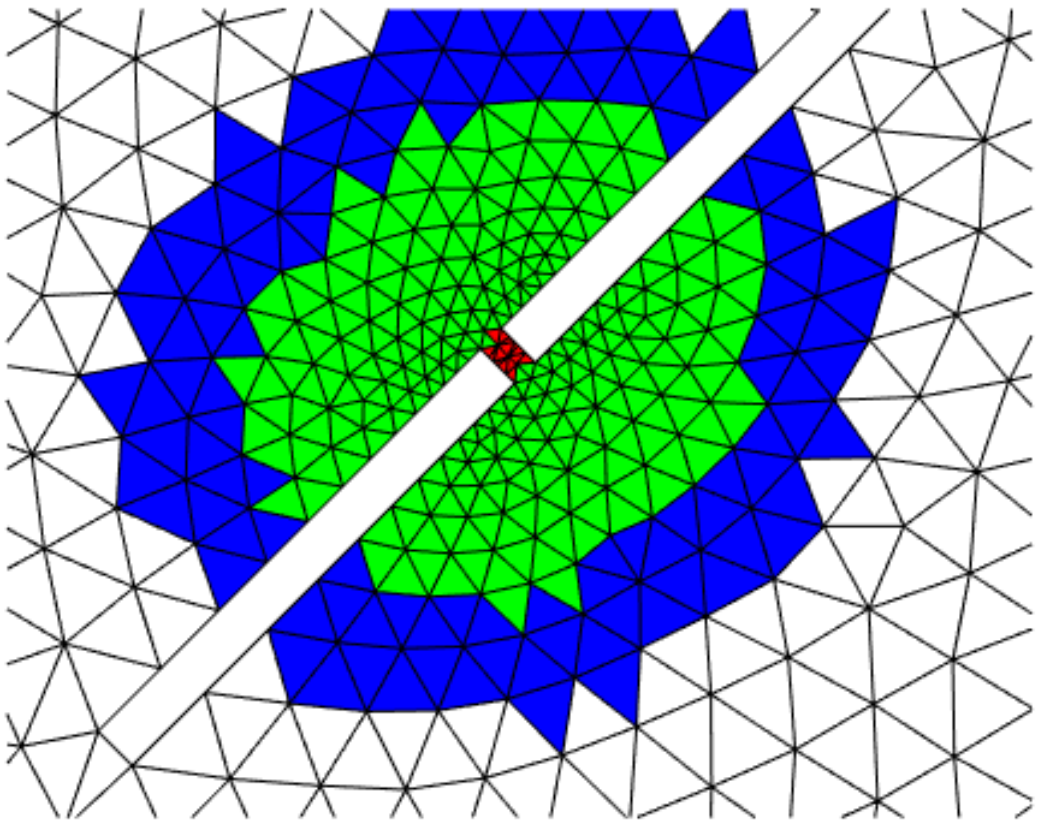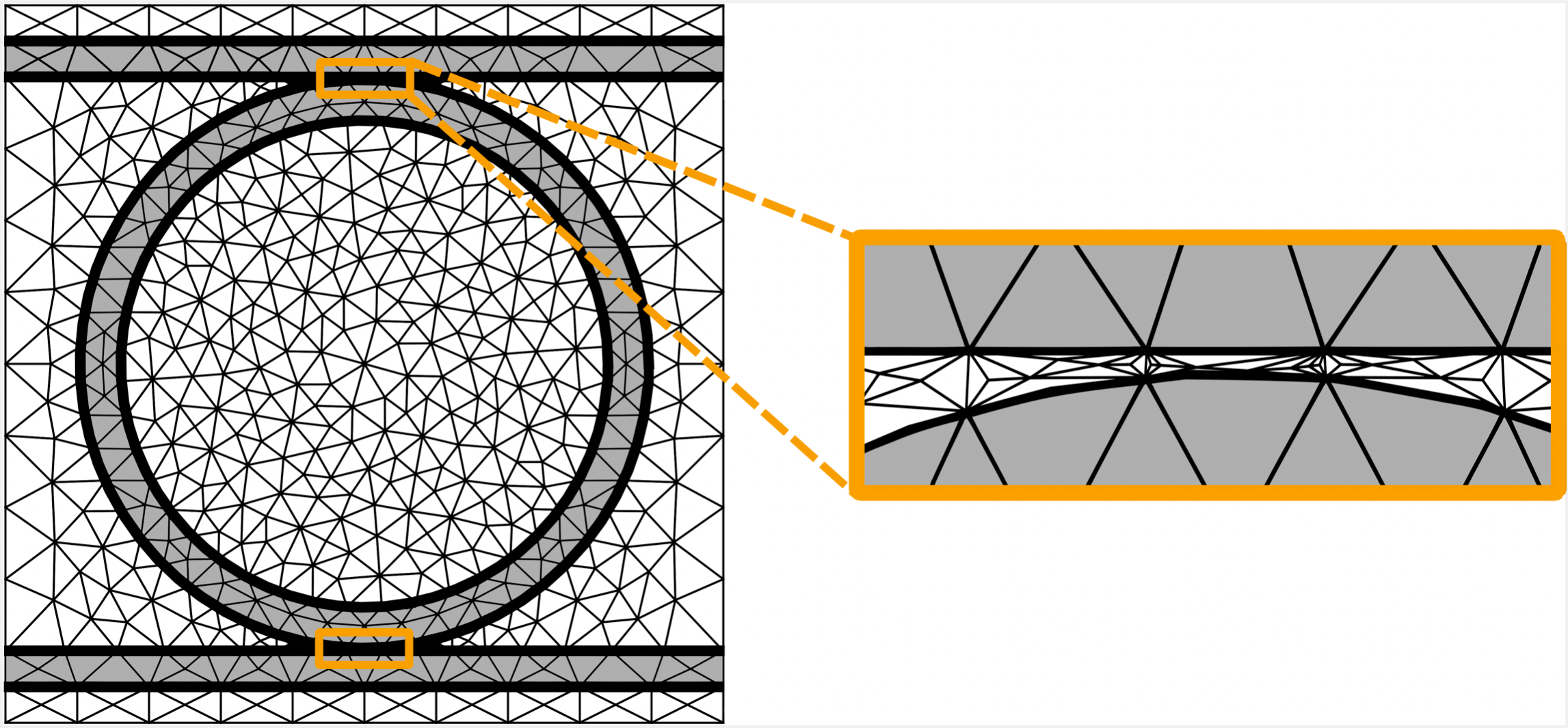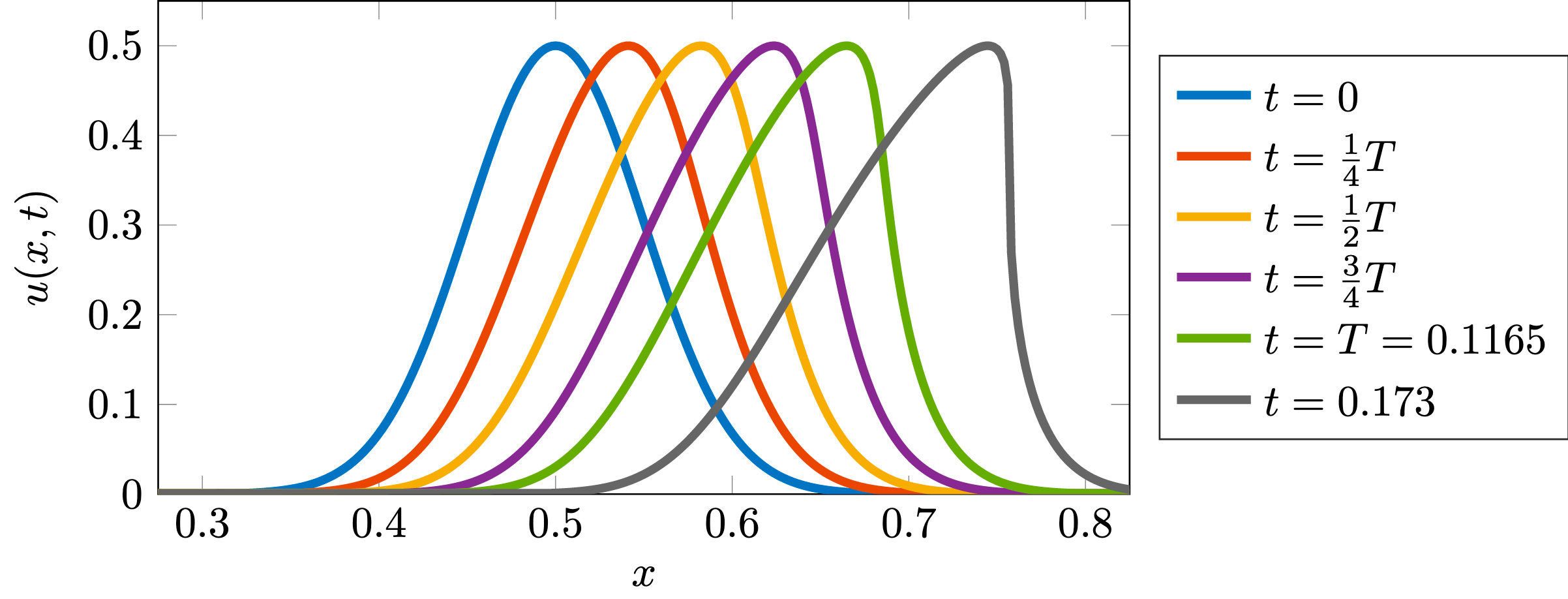Publications
. Error analysis of an implicit-explicit time discretization scheme for semilinear wave equations with application to multiscale problems. IMA J. Numer. Anal., 29pp., October 2025. URL https://doi.org/10.1093/imanum/draf092. Online first. [preprint] [files]
. Error analysis of the Lie splitting for semilinear wave equations with finite-energy solutions. Discrete Contin. Dyn. Syst., 45(9):2969–3008, September 2025. URL https://doi.org/10.3934/dcds.2025009. [preprint]
. Strong norm error bounds for quasilinear wave equations under weak CFL-type conditions. Found. Comput. Math., 25(1):303–350, February 2025. URL https://doi.org/10.1007/s10208-024-09639-w. [preprint] [files]
. Maximum norm error bounds for the full discretization of nonautonomous wave equations. IMA J. Numer. Anal., 44(4):2480–2512, July 2024. URL https://doi.org/10.1093/imanum/drad065. [preprint] [files]
. Error analysis of second-order local time integration methods for discontinuous Galerkin discretizations of linear wave equations. Math. Comp., 1–31, April 2024. URL https://doi.org/10.1090/mcom/3952. Online first. [preprint] [files]
. Analysis of a Peaceman–Rachford ADI scheme for Maxwell equations in heterogenous media. J. Math. Anal. Appl., 527(1, Part 1):127355, November 2023. URL https://doi.org/10.1016/j.jmaa.2023.127355. [preprint]
. Wellposedness and regularity for linear Maxwell equations with surface current. Z. Angew. Math. Phys., 74(4):131, August 2023. URL https://doi.org/10.1007/s00033-023-02021-w. [preprint]
. Error analysis for full discretizations of quasilinear wave-type equations with two variants of the implicit midpoint rule. IMA J. Numer. Anal., 43(2):1149–1180, March 2023. URL https://doi.org/10.1093/imanum/drac010. [preprint]
. Wave Phenomena. Mathematical Analysis and Numerical Approximation, volume 49 of Oberwolfach Seminars. Birkhäuser Cham, March 2023.
. Optimal $W^{1,\infty}$-estimates for an isoparametric finite element discretization of elliptic boundary value problems. Electron. Trans. Numer. Anal., 58:1–21, January 2023. URL https://doi.org/10.1553/etna_vol58s1. [preprint]
. Analysis of a dimension splitting scheme for Maxwell equations with low regularity in heterogeneous media. J. Evol. Equ., 22(4):90–135, November 2022. URL https://doi.org/10.1007/s00028-022-00850-2. [preprint]
. Error analysis of multirate leapfrog-type methods for second-order semilinear ODEs. SIAM J. Numer. Anal., 60(5):2897–2924, October 2022. URL https://doi.org/10.1137/21M1427255. [preprint] [files]
. Error analysis for space discretizations of quasilinear wave-type equations. IMA J. Numer. Anal., 42(3):1963–1990, July 2022. URL https://doi.org/10.1093/imanum/drab073. [preprint] [files]
. Exponential integrators for quasilinear wave-type equations. SIAM J. Numer. Anal., 60(3):1472–1493, June 2022. URL https://doi.org/10.1137/21M1410579. [preprint] [files]
. Interpolation of a regular subspace complementing the span of a radially singular function. Studia Math., 265(2):197–210, May 2022. URL https://doi.org/10.4064/sm210621-12-8. [preprint]
. Error analysis of a fully discrete discontinuous Galerkin alternating direction implicit discretization of a class of linear wave-type problems. Numer. Math., 150(3):893–927, March 2022. URL https://doi.org/10.1007/s00211-021-01262-z. [preprint] [files]
. A uniformly exponentially stable ADI scheme for Maxwell equations. J. Math. Anal. Appl., 492(1):124442, December 2020. URL https://doi.org/10.1016/j.jmaa.2020.124442. [preprint]
. Error analysis of discontinuous Galerkin discretizations of a class of linear wave-type problems. In W. Dörfler, M. Hochbruck, D. Hundertmark, W. Reichel, A. Rieder, R. Schnaubelt, and B. Schörkhuber, editors, Mathematics of Wave Phenomena, Trends in Mathematics, pages 197–218, October 2020. Birkhäuser Basel.
. On leapfrog-Chebyshev schemes. SIAM J. Numer. Anal., 58(4):2404–2433, August 2020. URL https://doi.org/10.1137/18M1209453. [preprint]
. Error analysis of an energy preserving ADI splitting scheme for the Maxwell equations. SIAM J. Numer. Anal., 57(3):1036–1057, May 2019. URL https://doi.org/10.1137/18M1203377. [preprint]
. Upwind discontinuous Galerkin space discretization and locally implicit time integration for linear Maxwell's equations. Math. Comp., 88(317):1121–1153, May 2019. URL https://doi.org/10.1090/mcom/3365. [preprint]
. On the efficiency of the Peaceman–Rachford ADI-dG method for wave-type problems. In F. A. Radu, K. Kumar, I. Berre, J. M. Nordbotten, and I. S. Pop, editors, Numerical Mathematics and Advanced Applications ENUMATH 2017, volume 126 of Lecture Notes in Computational Science and Engineering, pages 135–144, January 2019. Springer International Publishing. [preprint]
. Error analysis of an ADI splitting scheme for the inhomogeneous Maxwell equations. Discrete Contin. Dyn. Syst., 38(11):5685–5709, November 2018. URL https://doi.org/10.3934/dcds.2018248. [preprint]
. Convergence analysis of energy conserving explicit local time-stepping methods for the wave equation. SIAM J. Numer. Anal., 56(2):994–1021, April 2018. URL https://doi.org/10.1137/17M1121925. [preprint]
. Error analysis of implicit Runge–Kutta methods for quasilinear hyperbolic evolution equations. Numer. Math., 138(3):557–579, March 2018. URL https://doi.org/10.1007/s00211-017-0914-6. [preprint]
. Multilevel local time-stepping methods of Runge–Kutta-type for wave equations. SIAM J. Sci. Comput., 39(5):A2020–A2048, September 2017. URL https://doi.org/10.1137/16M1084407. [preprint]
. Error analysis of implicit Euler methods for quasilinear hyperbolic evolution equations. Numer. Math., 135(2):547–569, February 2017. URL https://doi.org/10.1007/s00211-016-0810-5. [preprint]
. Error analysis of a second-order locally implicit method for linear Maxwell's equations. SIAM J. Numer. Anal., 54(5):3167–3191, October 2016. URL https://doi.org/10.1137/15M1038037. [preprint]
Preprints
. A non-iterative domain decomposition time integrator combined with discontinuous Galerkin space discretizations for acoustic wave equations. CRC 1173 Preprint 2025/51, Karlsruhe Institute of Technology, October 2025. [files]
. A non-iterative domain decomposition time integrator for linear wave equations. CRC 1173 Preprint 2025/42, Karlsruhe Institute of Technology, July 2025. [files]
. Improved error estimates for low-regularity integrators using space-time bounds. CRC 1173 Preprint 2025/13, Karlsruhe Institute of Technology, March 2025. Revised version of July 2025. [files]
. Error analysis of the Strang splitting for the 3D semilinear wave equation with finite-energy data. CRC 1173 Preprint 2025/8, Karlsruhe Institute of Technology, March 2025. [files]
. Local time-integration for Friedrich's systems. CRC 1173 Preprint 2025/6, Karlsruhe Institute of Technology, February 2025. [files]
. Finite element discretization of nonlinear models of ultrasound heating. CRC 1173 Preprint 2025/3, Karlsruhe Institute of Technology, January 2025. Revised version of October 2025. [files]
. Robust fully discrete error bounds for the Kuznetsov equations in the inviscid limit. CRC 1173 Preprint 2024/1, Karlsruhe Institute of Technology, January 2024. Revised version of October 2025. [files]
. Error analysis of the implicit Euler scheme for the Maxwell–Kerr system. CRC 1173 Preprint 2023/3, Karlsruhe Institute of Technology, January 2023.
. Preconditioned implicit time integration schemes for Maxwell's equations on locally refined grids. CRC 1173 Preprint 2022/29, Karlsruhe Institute of Technology, June 2022. [files]
Theses
. On leapfrog-Chebyshev schemes for second-order diffferential equations. PhD thesis, Karlsruhe Institute of Technology, December 2021.
. Error analysis of exponential integrators for nonlinear wave-type equations. PhD thesis, Karlsruhe Institute of Technology (KIT), February 2021.
. ADI schemes for the time integration of Maxwell equations. PhD thesis, Karlsruhe Institute of Technology, December 2020.
. Error analysis for space and time discretizations of quasilinear wave-type equations. PhD thesis, Karlsruhe Institute of Technology, May 2020.
. The Peaceman–Rachford ADI-dG method for linear wave-type problems. PhD thesis, Karlsruhe Institute of Technology (KIT), September 2018.
. Error analysis of splitting methods for wave type equations. PhD thesis, Karlsruhe Institute of Technology (KIT), July 2017.
. Locally implicit time integration for linear Maxwell's equations. PhD thesis, Karlsruhe Institute of Technology (KIT), April 2017.

